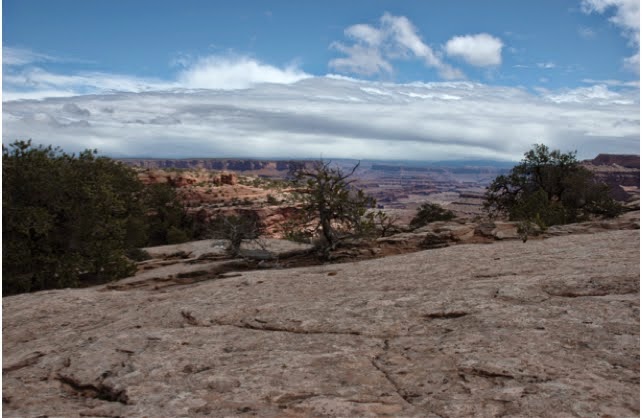Scientists agree that one of the effects of global climate change will be major changes in the amount and timing of rainfall.
And while many studies have been conducted to gauge the reaction of plants to draughts, less has been done to learn what happens to plants when it rains a lot, or at unusual times.
In a new paper published by the journal Biogeosciences, James Lewis, Ph.D., professor and chair in the Department of Biological Sciences at Fordham, helped shed some light on the current gaps in research.
“Impacts of Extreme Precipitation and Seasonal Changes in Precipitation on Plants” is the result of a collaborative effort between Lewis and Melanie Zeppel and Jessica Wilks of Macquarie University, Sydney.
It’s a global review of how plants respond to extreme precipitation in different ecosystems around the planet, such as dry grasslands, woodlands, warm humid tropical rainforests, savannas, as well as cold deserts.
 |
|
Plants from one of the study regions, cold desert Canyonlands National Park, Southern Utah.
Photo by Patrick Hudson |
Because changes in both the amount and timing of precipitation change soil water content, plant growth is likely to be affected. This has implications for food production, forestry industry, biodiversity and carbon and water cycles. Pests, pathogens and invasive species are likewise influenced by extreme precipitation changing soil water content.
Lewis said the review, which involved thousands of papers going back 30 years, came about after they began examining the studies already done on savannahs, for a study they plan to conduct on this topic. They found that some manipulative studies have been done on grasslands and on temperate and tropical forests, but that’s about the extent of it.
Scientists can make general predictions about plants and rainfall based whether plant’s soil bed is of sand or clay, whether the roots go deep or shallow, and whether a plant has a short or long lifespan.
But no one knows just how differently tropical forests will respond, compared to boreal forests in the Arctic or even deserts. Of special concern is how studies point toward a need for greater irrigation of agricultural systems, which will likely experience less rainfall.
“Precipitation patterns are likely to vary in many parts of the planet,” Lewis said.
“And in areas that are relatively wet, this may have negative consequences for plants, particularly if those changes in rainfall are reductions in the amount of rain during the growing season.
Other areas may actually benefit, however, “because the rainfall may actually increase during the periods when plants are growing and decrease during the periods when they’re not.”
Lewis said the study can serve as a road map for future studies of extreme precipitation.
“We don’t view the review as definitive; we view it as pointing out the next steps,” he said.
—Patrick Verel








